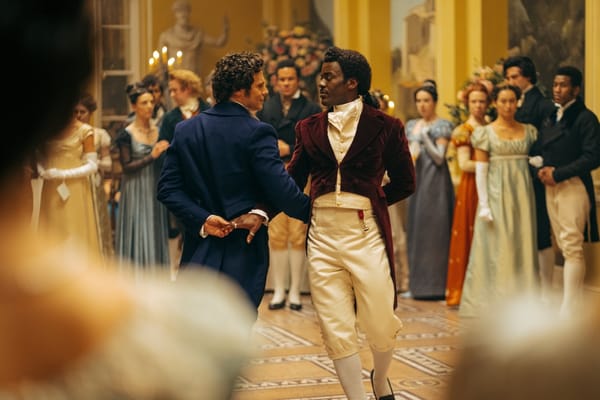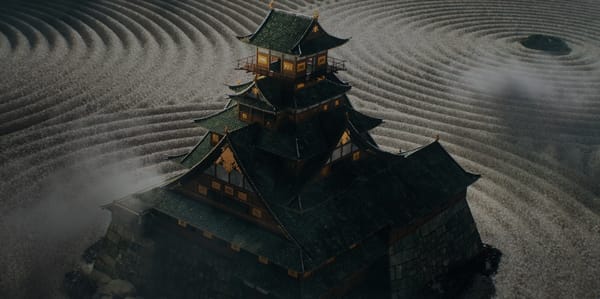A Crappy Day (of the Doctor)
Oh, this is all spoilers, all of it. Don’t come near it if you’ve not watched ‘The Day of the Doctor’.
It’s also a whole bunch of complaining. If you’d like to read something happy, read my jolly post on the same subject, where I pretend that the following things don’t deeply irritate me.
The man who changes himself
Once upon a time, there was a normally very nice alien who’d found himself forced into a horrible situation, where his people and another race of people were about to destroy the whole universe and he killed them all to stop it.
Later on, after a long process of healing involving Billie Piper (the best sort of healing) he came to realise that he’d made the wrong call, that he wasn’t made for mass murdering, and when given the chance to wipe Earth out to stop the whole planet from being Dalekified, he refused.
“Coward or killer?”
“Coward. Every time.”
I liked that bit. I like the fact that it’s still a morally complicated choice: he did effectively fail by doing that, leaving humanity to be exterminated, and had no way of knowing that Rose was going to pop by and save the day. But he gave them minutes longer to live, and he didn’t destroy innocents to destroy their would-be murderers. It’s awkward, and I like it that way.
Anyhow, in November 2013, 'The Day of the Doctor’ reintroduced us to the Doctor’s horrible, genocidal decision. Once again, with the benefit of hindsight (and future-sight) the Doctor realises it was the wrong choice… though this time, instead of making new, better choices, he goes back to the previous one and changes it. Timey-wimey, don’t you know.
I guess it all comes down to a question of your preferences with storytelling. Do you want the story where a person grows from his mistakes and changes, which is somewhat relatable to your existence? Or do you want the story where a person gets to magically undo his previous bad decision, which is like nothing you’ll be able to do, ever? It’s this detachment from causality and the permanence of consequences that has been really annoying me in Doctor Who of late, and 'The Day of the Doctor’ embraces it yet again.
It’s entirely possible that I wouldn’t care if I was a kid. I mean, that goes for almost everything written here. But I prefer it that when people die in Doctor Who, you care about them and you’re sad, and that when the Doctor saves someone, it’s a genuine relief. These days, it’s hard to bring yourself to care about tragedies before the inevitable subsequent resurrection. But in the case of 'Day’, four good (mostly) years of Doctor Who had made me care about the death of the Time Lords. And now, suddenly, BAM.
One Genocide is better than Two
Doctor Who regularly includes a little line to explain away a potential hole in the plot, or to quickly paper up an otherwise contradictory clash with previously established continuity. In The Day of the Doctor, we have an odd little line that seems to be there to address the Doctor’s culpability in the destruction of all1 the Daleks.
The Dalek fleets are surrounding Gallifrey, firing on it constantly… What if the whole planet just disappeared? The Daleks would be firing on each other. They’d destroy themselves in their own crossfire. Gallifrey would be gone and the Daleks would be destroyed…
If you buy that, and I’m pretty sure you’re supposed to, then the Doctor has avoided committing any genocide at all, on the technicality that the Daleks all shot themselves by accident. I’m reminded of Remembrance of the Daleks, from the eighties. In that story, the Doctor pulls what you can only call a Brer Rabbit, pleading with Davros not to use the awesome superweapon he’s just let him have… only to find that when he does, the Doctor had sabotaged it, and the whole of Skaro is destroyed as a result.2
From the muted ending to Remembrance (and the subsequent treatment in the novels), despite his sneaky trickery, the Doctor accepts responsibility for the act, and feels a deep guilt for it. And indeed, in the Davies era, he seemed upset about destroying all the Daleks as well as all the Time Lords; by the time of Journey’s End, he completely condemns the wholescale slaughter of the Dalek fleet by the human-Doctor. But here… he appears to be totally cool with it. Hurt-Doctor strongly implies that he’ll only be sad once he forgets what he just did.
In the end, all the Doctors have done is trade two genocides for one. Which, I guess, is better. But there’s still a lot of blood on his hands. And, presumably, the whole universe could get wiped out if he’s not really careful when he eventually catches up with Gallifrey again.3
Time Lords: not so bad once you get to know them
There’s a pretty successful attempt made in this story to completely ignore the fact that the Time Lords, too, have been part of this universe-spanning conflict, that they had become kind of evil themselves, that thousands of them had planned to wipe out the whole of reality, and are doing that right now, on another part of the planet. Well, they are mentioned, but that’s about it. You don’t even think about it while you’re watching, which is nice, because otherwise the whole idea of the story really wouldn’t work.
The Time Lords we see today are really quite nice, and the ones that aren’t talking are families running through the ruins of Gallifrey in panic and fear. It feels kind of emotionally manipulative to show us these guys and not the Time Lords made evil, twisted and corrupt by the time war, the fearsome, manipulative bastards. I guess the Moment just doesn’t want to undermine her argument to the Hurt Doctor, not even a little. But let’s not forget that the Daleks currently attempting to destroy Gallifrey are effectively acting to save reality from complete annihilation.
The War in Heaven
It was pretty clear as soon as 'The Last Day’ showed up on iTunes that the War as shown here wasn’t even remotely going to measure up with your wildest dreams of what a 'time war’ was. Not that it could, ever, but yikes, it didn’t feel like they’d even tried.
I mean, there was no time travel. At all. Just guns. Lots of guns. Nothing mystical, nothing creepy, nothing disturbing. No Could’ve Been King with an army of Meanwhiles and Neverweres. No Nightmare Child, no Horde of Travesties. Just a bog-standard space battle. I mean, fuck.
I choose to believe that somehow, at the very end, the time war just got unexpectedly boring. Maybe a horrible time-destructor weapon regressed them all to the pitiful technology level of ray guns and space armour. Maybe all the time machines ran out of juice. Certainly, there’s not a TARDIS to be seen. (OH GOD IMAGINE A FLEET OF TARDISES FIGHTING THE DALEKS, no wait, don’t, you’ll just feel disappointed). I’ve had to come up with another kind of 'time eddy’ that pulled all the Daleks and all the Time Lords to Gallifrey at that point to make the single-point-in-time-and-space destruction of everyone make any sense, too.
Don’t look at me like that. This whole story was about rewriting the past. I’ll be damned if I’m not going to do a bit too, just to make it all a bit less lame.
Going Home
At the end, alongside a special effect that is perhaps the worst seen in Who in years, the Doctor announces that he’s got a new mission: he’s going home.
Which seems to me to be perhaps the one theme you could pick that’s the most opposed to the whole idea of Doctor Who. I know it’s risky trying to nail down what Who is, but… surely it’s about running, about falling out of the world, about travel, about exploration, about leaving. And sure, the other characters can go home from time to time, but the Doctor himself? Having the Doctor declare something like that makes me kind of nervous. Because sometimes homes really do just suck, and sometimes leaving is the right thing to do, and from all we’ve ever learned about Gallifrey, the Doctor made the right call.
I don’t know. It might turn out okay. But it’s hard to shake the feeling that “going home” is one of those things that almost every other story ever is about, and something that Who could distinguish itself by avoiding.
In the end
In the end, I really wish they’d just left the time war alone. Or, at the very least, found a way to bring Gallifrey back by resurrecting it, rather than pissing on one the best story arcs the show has ever managed.
-
Obviously, you can never kill all of the Daleks, but it’s certainly as many Daleks as the Doctor’s ever managed to kill while intending to kill them all. ↩
-
The destruction of Skaro in that story was later retconned in the BBC Eighth Doctor novels. And done so badly that it kind of makes me feel better about this story. ↩
-
Or maybe he’ll just claim with no apparent evidence whatsoever that they’re all nice now and will totally come in peace. Who knows? Well, I do, because I’m pretty fucking slack at writing reviews and we’re well past Christmas. ↩


